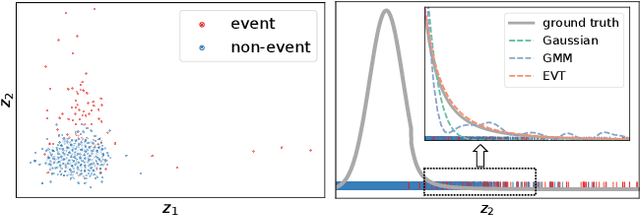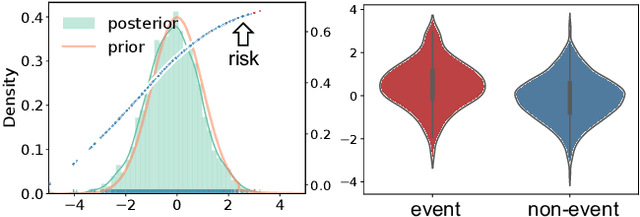Variational Disentanglement for Rare Event Modeling
Paper and Code
Sep 21, 2020



Combining the increasing availability and abundance of healthcare data and the current advances in machine learning methods have created renewed opportunities to improve clinical decision support systems. However, in healthcare risk prediction applications, the proportion of cases with the condition (label) of interest is often very low relative to the available sample size. Though very prevalent in healthcare, such imbalanced classification settings are also common and challenging in many other scenarios. So motivated, we propose a variational disentanglement approach to semi-parametrically learn from rare events in heavily imbalanced classification problems. Specifically, we leverage the imposed extreme-distribution behavior on a latent space to extract information from low-prevalence events, and develop a robust prediction arm that joins the merits of the generalized additive model and isotonic neural nets. Results on synthetic studies and diverse real-world datasets, including mortality prediction on a COVID-19 cohort, demonstrate that the proposed approach outperforms existing alternatives.
 Add to Chrome
Add to Chrome Add to Firefox
Add to Firefox Add to Edge
Add to Edge